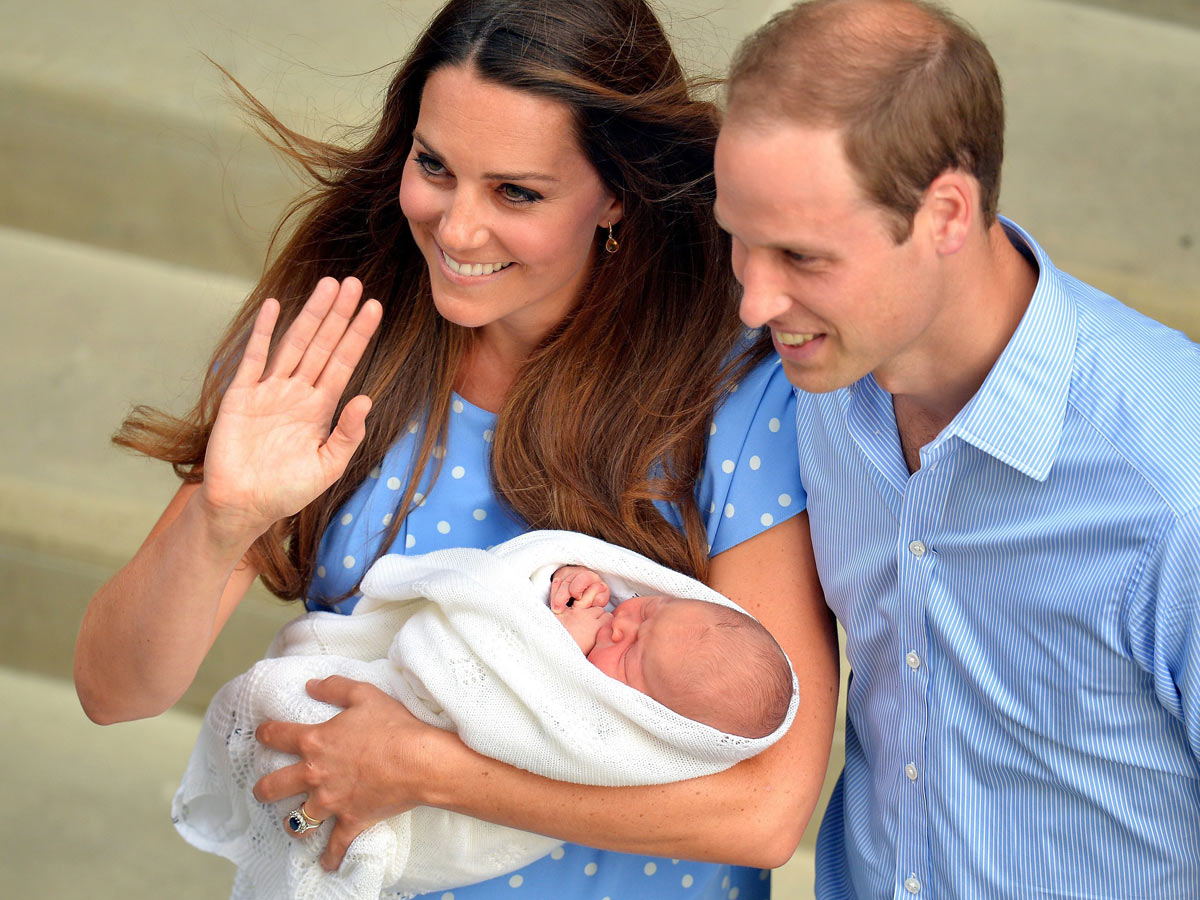TORONTO – Boy George it is!

The Duke and Duchess of Cambridge have revealed the royal baby’s name to be George Alexander Louis. The third in line to the throne will be known as His Royal Highness Prince George of Cambridge.
So what’s in a royal name?
A British monarch hasn’t had an original name since Victoria took the throne in 1837 (before that, you have to go back to 1714).
In the time since England’s first real king, Aethelstan, crowned in 927, George is the most recent royal name to resurface, at only 61 years since the name was given.
READ MORE: 1,086 years of royal baby names
In a duration of time second only to the name Henry, there have been 156 years spent under a monarch named George, with six previous reigning Georges.
George was the Sovereign name of the Queen’s beloved father, George VI, who rallied the nation during the Second World War. It’s also one of Prince Charles’ middle names, as well as a middle name of King Edward VIII.
Meaning farmer or earth worker, George was the 12th most popular name for boys born in England and Wales in 2011. St. George, a 4th-century Christian martyr, is the patron saint of England.
The name Louis could be a tribute to Lord Louis Mountbatten, the Duke of Edinburgh’s uncle and the last British Viceroy of India before independence in 1947. William’s father, Prince Charles, was close with Mountbatten, who was assassinated by the Irish Republican Army in 1979.
While the Daily Mail reported George (along with James) became favourites with bookies Tuesday night, Nottingham Trent University social historian Judith Rowbotham expressed her doubts, noting: “The 19th century Prince George of Cambridge was not exactly a model that Kate and William would wish the new prince to emulate.”
“He was not popular with his cousin Queen Victoria, especially after he married an actress who was the mother of four children by three different fathers,” she told the Daily Mail.
There was also George I (r. 1714-1727) who spoke German, French and only a little English. He was born in Hanover (in what’s now Germany) and after the death of Queen Anne of Great Britain, George ascended the British throne, as he was Anne’s closest living Protestant relative.
George’s limited language ability coupled with his unfamiliarity with British customs made him dependent on his ministers, and the Whigs dominated Parliament during his reign, according to the official website of the British Monarchy.
He imprisoned his wife in 1694, was not well liked by the public, and rarely attended Cabinet meetings. The most able of George’s ministers, Robert Walpole, took over after the South Sea Bubble crisis of 1720.
However, the royal baby doesn’t necessary have to reign with the name George.
George VI was given the name Albert Frederick Arthur George, Edward VII was Albert Edward, and Victoria was Alexandrina Victoria.
In addition, Charles (Charles Philip Arthur George) might choose to reign as George VII, and William (William Arthur Philip Louis) might choose to reign as something other than William, which would affect the royal baby’s numbering.
If neither his uncle nor his father chose to use any of his names, royal baby George could use George VII, Alexander I of England/IV of Scotland (the Scots got up to Alexander III) or Louis I.
With files from Patrick Cain and The Canadian Press


Comments